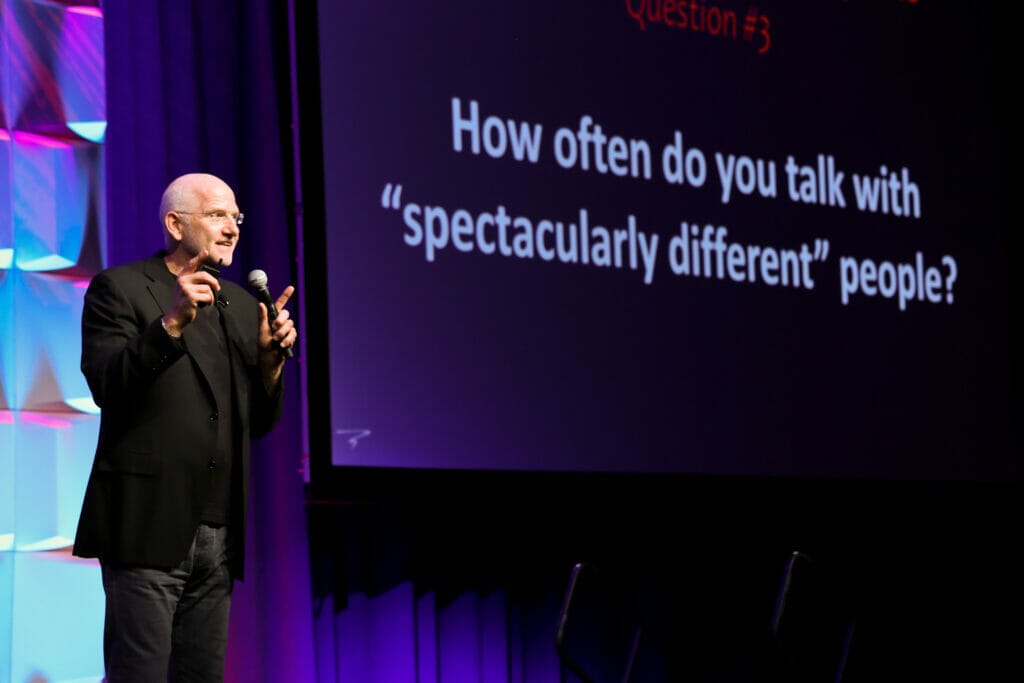
Prioritizing Mental Health: Eight Research-Backed Perspectives for a Happier, Healthier Organization
Leaders who put employees’ mental health first increase engagement, productivity and loyalty among their workforce
Meg Virag | August 29th, 2022
Addressing and improving mental health and wellbeing has become a cornerstone of workplace conversation over the last few years. Between impacts from large-scale news events breaking almost daily, after-effects of the pandemic, and concerns about ongoing global conflicts, the uncertainty of what’s coming next is taking a toll on our mental health, including at work.
As we navigate various transitions over the coming months and years, leaders are likely to see employees struggle with anxiety, depression, burnout and trauma. Leaders that strive to improve workplace culture, offer meaningful benefits, and commit to mental health from the top down can make a considerable impact on their organization’s financial, emotional and social health.
When organizations invest in mental health, it’s better for employees and better for business. So, what can leaders do to support people as they face new stressors, safety concerns and economic upheaval? Look to these nine thought leaders for guidance:
When employees can work in an environment where they feel empowered to share their thoughts and point out problems, they become an organization’s most powerful asset for innovation. For more than 20 years, Harvard Business School Professor Amy Edmondson has been deploying the well-researched methodologies outlined in her bestselling 2018 book, “The Fearless Organization: Creating Psychological Safety in the Workplace for Learning, Innovation, and Growth,” to remove barriers to success and engender an atmosphere of psychological safety. By teaching organizations how to continuously improve performance by fostering a culture of psychological safety, Edmondson is unveiling the right ways to identify and address problems through an atmosphere of learning, cooperation and teamwork.
A trade-off mindset between the four domains of life – work, family, community and self (mind, body and spirit) – prevents us from leading and performing as effectively as we would like. But harmony is possible, says renowned Wharton Professor Stew Friedman. As he persuasively proves in his bestselling book, “Total Leadership: Be a Better Leader, Have a Richer Life” (2008) and its insightful follow-up, “Parents Who Lead: The Leadership Approach You Need to Parent with Purpose, Fuel Your Career, and Create a Richer Life” (2020), people who confidently communicate what’s important to them feel more real, whole and committed to their work. His evidence-based exercises and vivid stories illustrate essential confidence-boosting strategies and principles that sharpen focus, increase energy and altogether bring a sense of purpose to work.
In the era of mass mobility, which INSEAD’s Professor Gianpiero Petriglieri calls “nomadic professionalism,” highly skilled individuals are more apt to see themselves as independent employees who prefer workplaces where mental health is a priority. Petriglieri is an expert in how to foster the deep relationships that help workers achieve success and personal fulfillment. His new perspectives and frameworks for making work more human at all levels allow for the individual to flourish while ensuring they forge close bonds with the organization at the same time.
How can organizations create an empowering workplace where employees can fearlessly speak up about concerns, challenge conventional ways of thinking, and have the confidence to explore their most agile and innovative ideas? A renowned expert on leadership and dialogue, Hult International Business School Professor Megan Reitz teaches leaders that having a psychologically safe culture requires them to notice their own habits and be mindful of the signals they’re sending which may be deliberately or inadvertently silencing others. Reitz’s evidence-based communication tools for leaders, as outlined in her book, “Speak Up: Say What Needs to Be Said and Hear What Needs to Be Heard” (which was shortlisted for CMI Management Book of the Year 2020) and the transformational, exercise-focused, “Mind Time: How Ten Mindful Minutes Can Enhance Your Work, Health and Happiness,” encourage employees to speak up, ensuring all voices are heard and that vital knowledge and innovative ideas are regularly exchanged.
A surprising and troubling finding emerged as longtime Harvard Graduate School of Education researcher Wendy Fischman and her co-author – esteemed developmental and cognitive psychologist Howard Gardner – were working on their new book, “The Real World of College: What Higher Education Is and What It Can Be” (MIT Press, March 2022): After conducting the largest study of its kind in the U.S., they unexpectedly discovered that mental health was the biggest problem on college campuses, and that its significance is on the rise. Fischman and Gardner’s insights on how institutions can proactively address this pervasive problem helps them refocus their students on how they can become responsible and productive citizens of the world.
Despite long-standing evidence that a committed workforce is fundamental to success, firms continue to attach too little importance to their workers’ wellbeing, says Stanford University Professor Jeffrey Pfeffer, author of “Dying for a Paycheck: How Modern Management Harms Employee Health and Company Performance―and What We Can Do About It” (2018) and leading authority on building cultures that achieve competitive advantage through people. Instead of focusing mainly on growing through mergers and acquisitions, improving existing technology, or being first to market, companies can achieve success by placing values above strategy, implementation over planning, and by striving to get the best out of all employees. By replacing stale management practices with original frameworks for nurturing a healthier culture, Pfeffer positions leaders at the front lines of the coming mental health revolution, teaching them how to address issues of economic insecurity and workplace stress in a way that unlocks the greatest innovation and creativity from their employees.
Mental health problems such as anxiety disorders and depression have gradually increased among people under the age of 26 since the adoption of the smart phone, and depression is on track to be the #1 disease burden globally by 2030. Thanks to MIT Professor Rosalind Picard and her team, mobile and wearable devices are improving in their ability to model continuous physiology and activity/sleep/social data, detect subtly changing patterns related to shifts in health, and provide early AI-generated forecasts. Her eye-opening presentations highlight the latest research and technologies around neurological activity, mood, stress and brain health, focusing on both the scientific and ethical challenges around using AI to foster good mental health.

Employees solving complex problems with cutting-edge solutions may think they should have all the answers, but in fact, says Hal Gregersen, senior lecturer in leadership and innovation at the MIT Sloan School of Management, they should be asking questions. As described in his award-winning, bestselling book, “Questions Are the Answer: A Breakthrough Approach to Your Most Vexing Problems at Work and in Life” (2018), Gregersen’s Question Burst method teaches leaders and employees techniques to reframe their learning experience, restore their powers of inquiry and inspire a sense of purpose, transforming them into hotbeds of innovation. Winner of the Thinkers50 2017 Leadership Award, Gregersen welcomes leaders to reimagine learning as a curve so they can recognize the emotional adjustment moments implicit in growth and keep moving forward, even during times of major transition.
Organizations that prioritize mental health benefits are rewarded with increased employee loyalty, greater innovation and ultimately more profit. Stern Speakers & Advisors connects you with renowned thought leaders whose insights, strategies and management frameworks help organizations fuel growth and disruptive innovation to better compete in a constantly changing world. Let us arrange for these esteemed experts to advise your organization via virtual and in-person consulting sessions, workshops and keynotes.